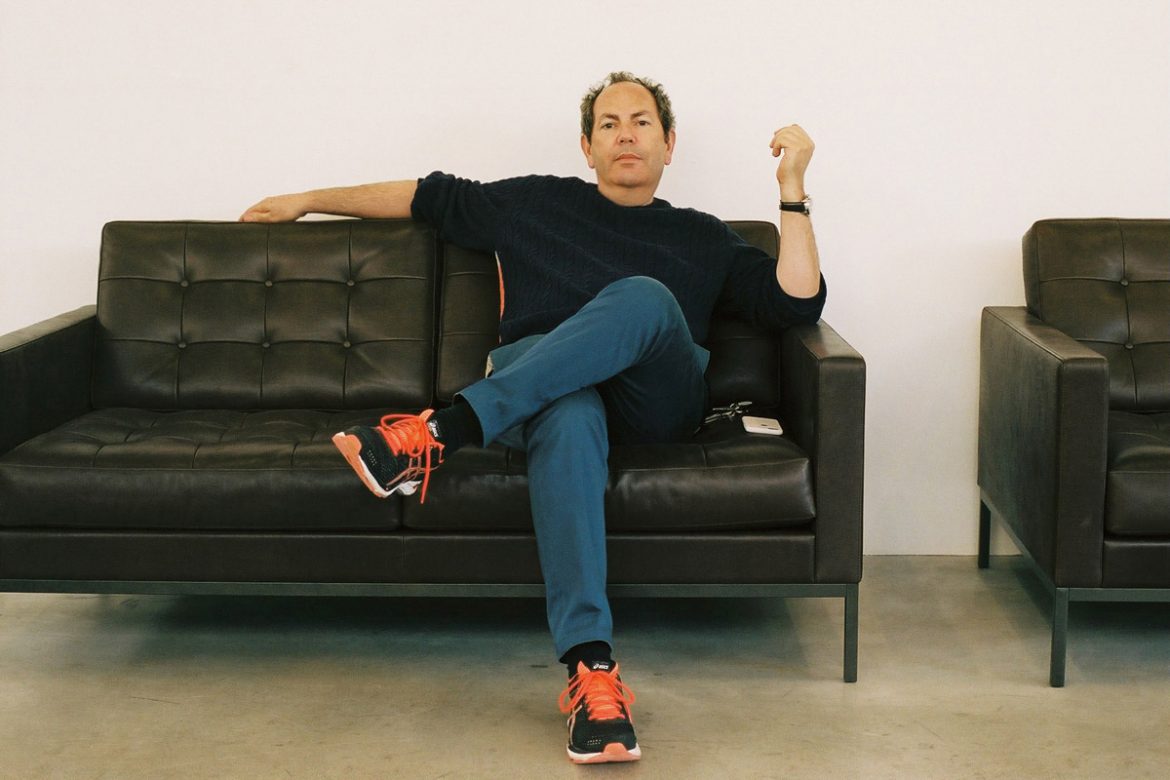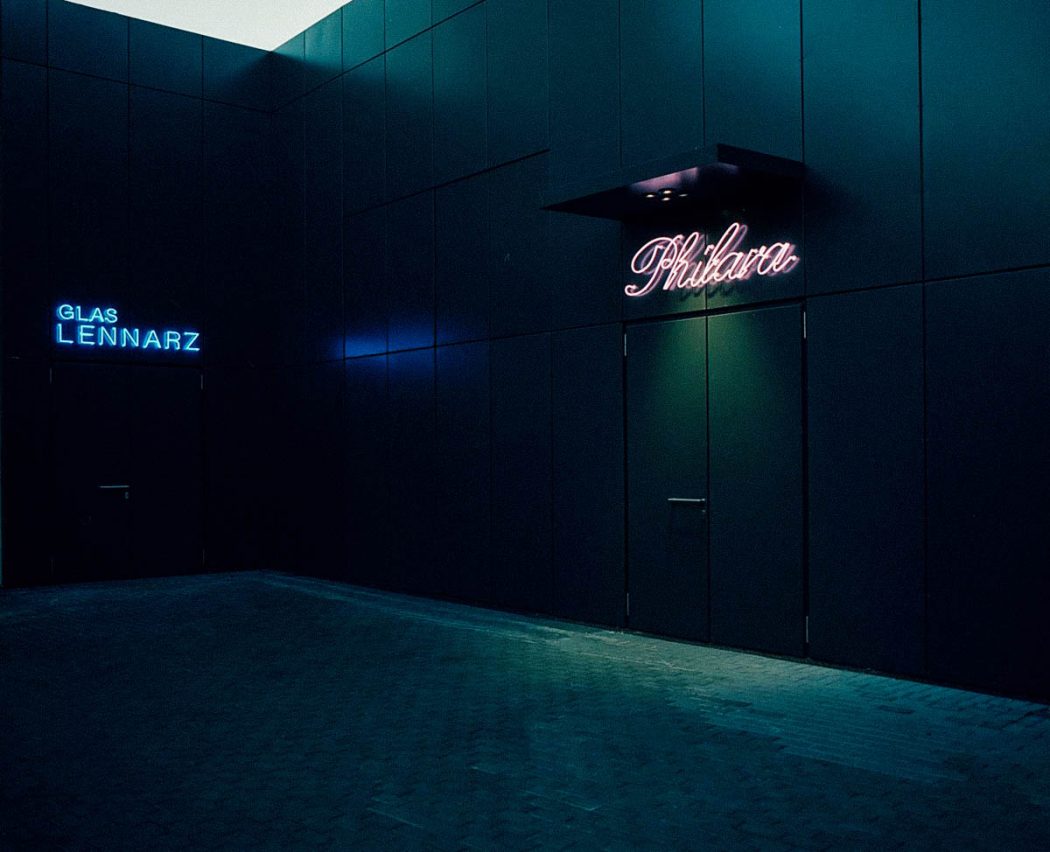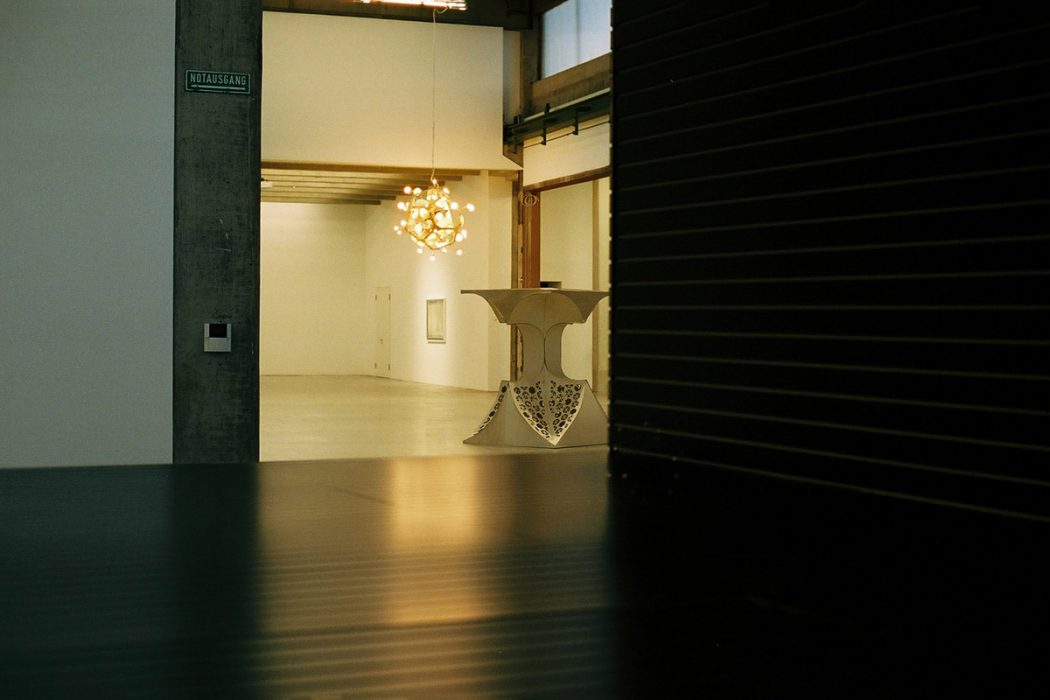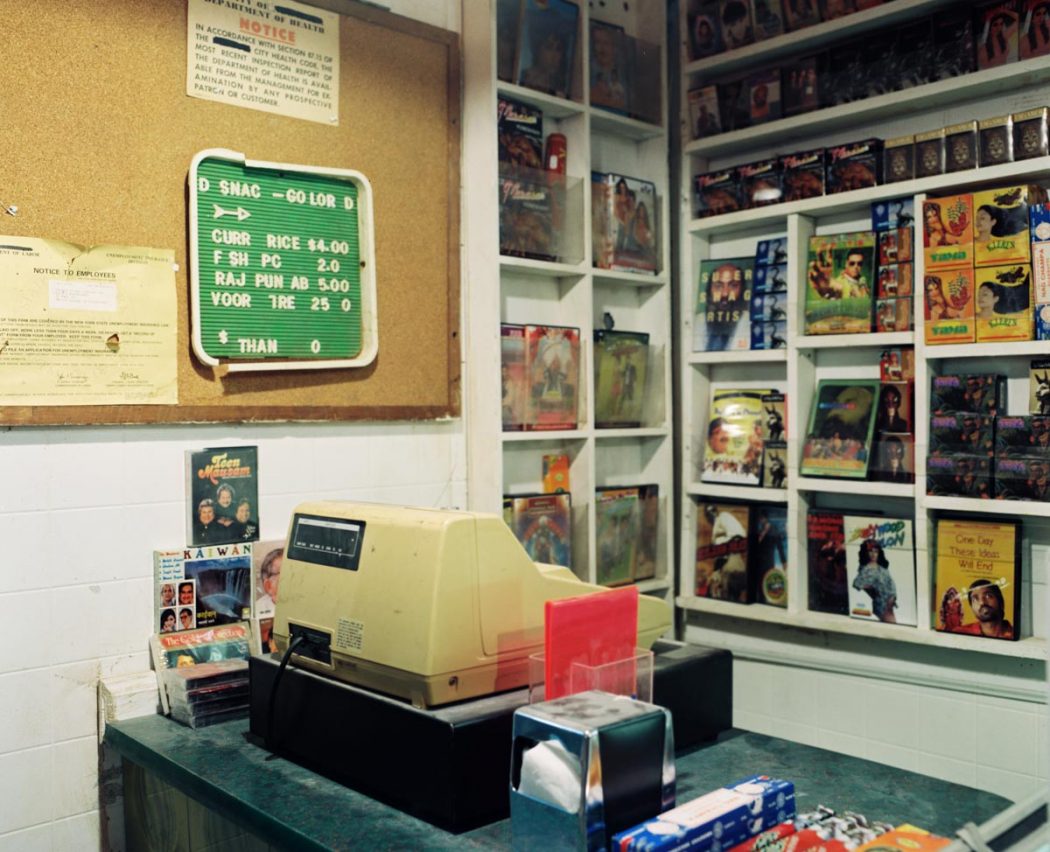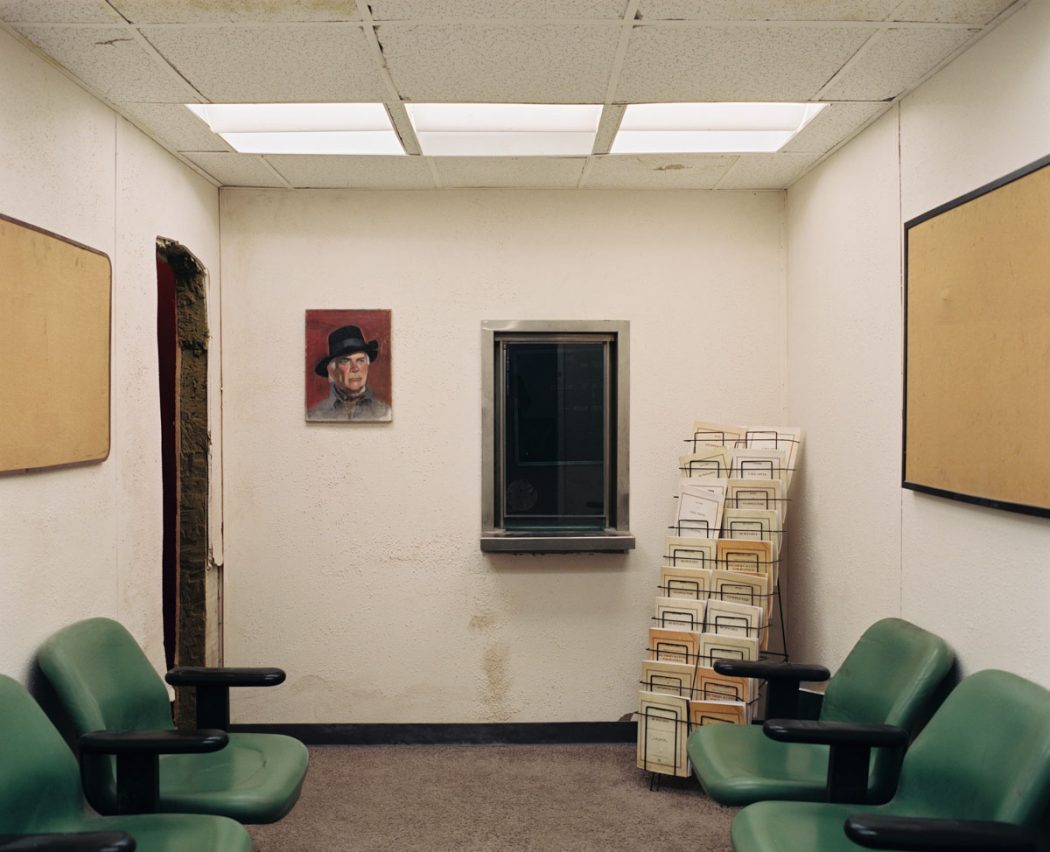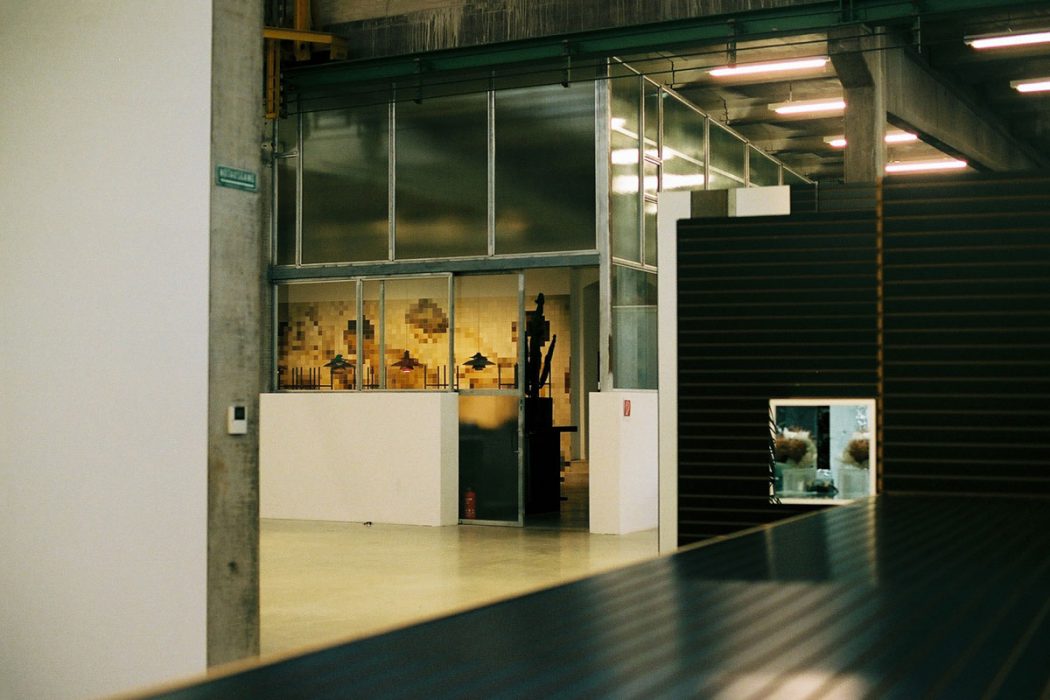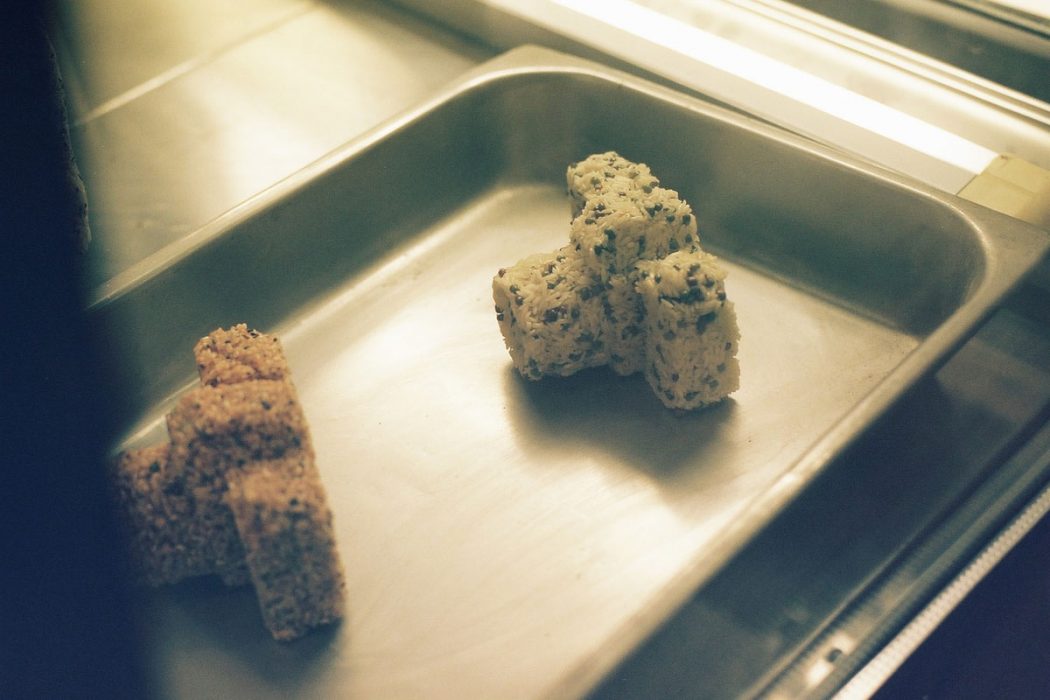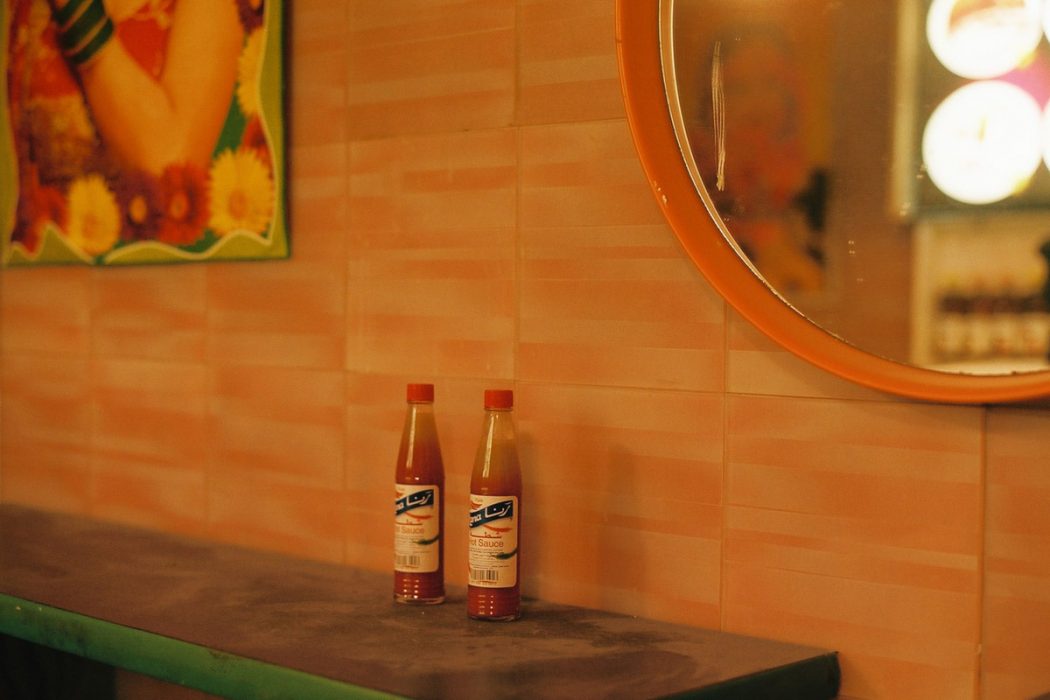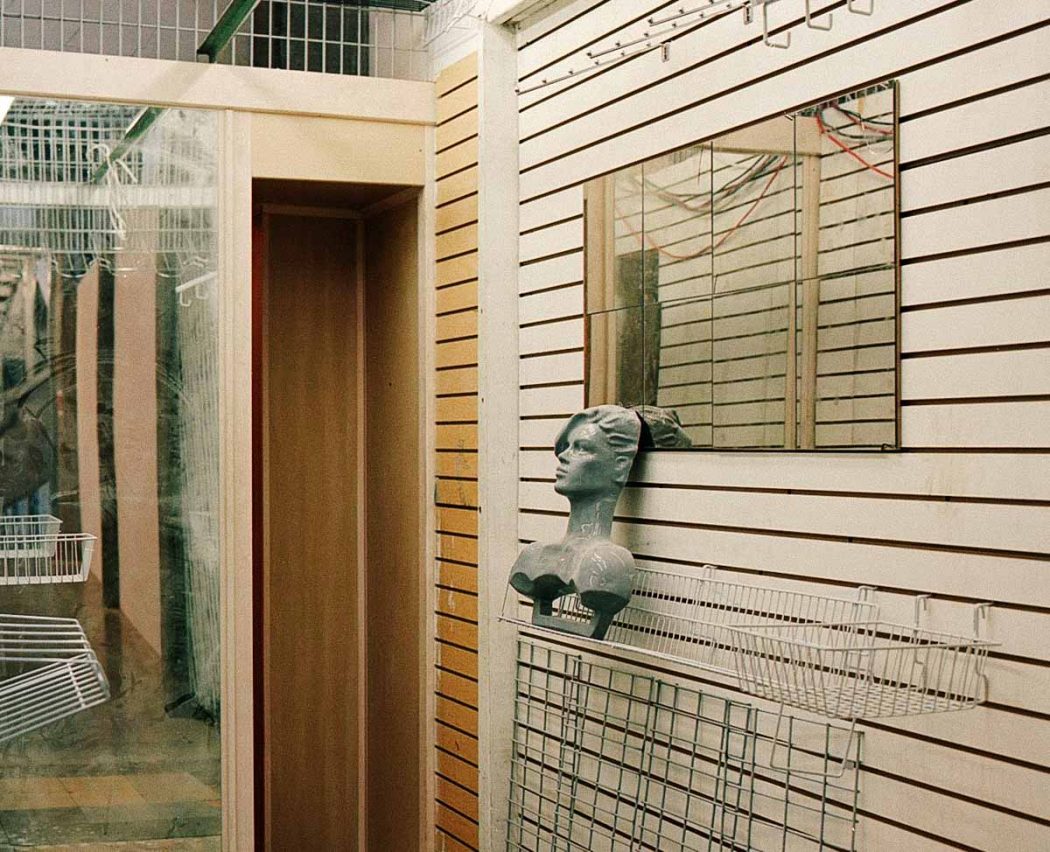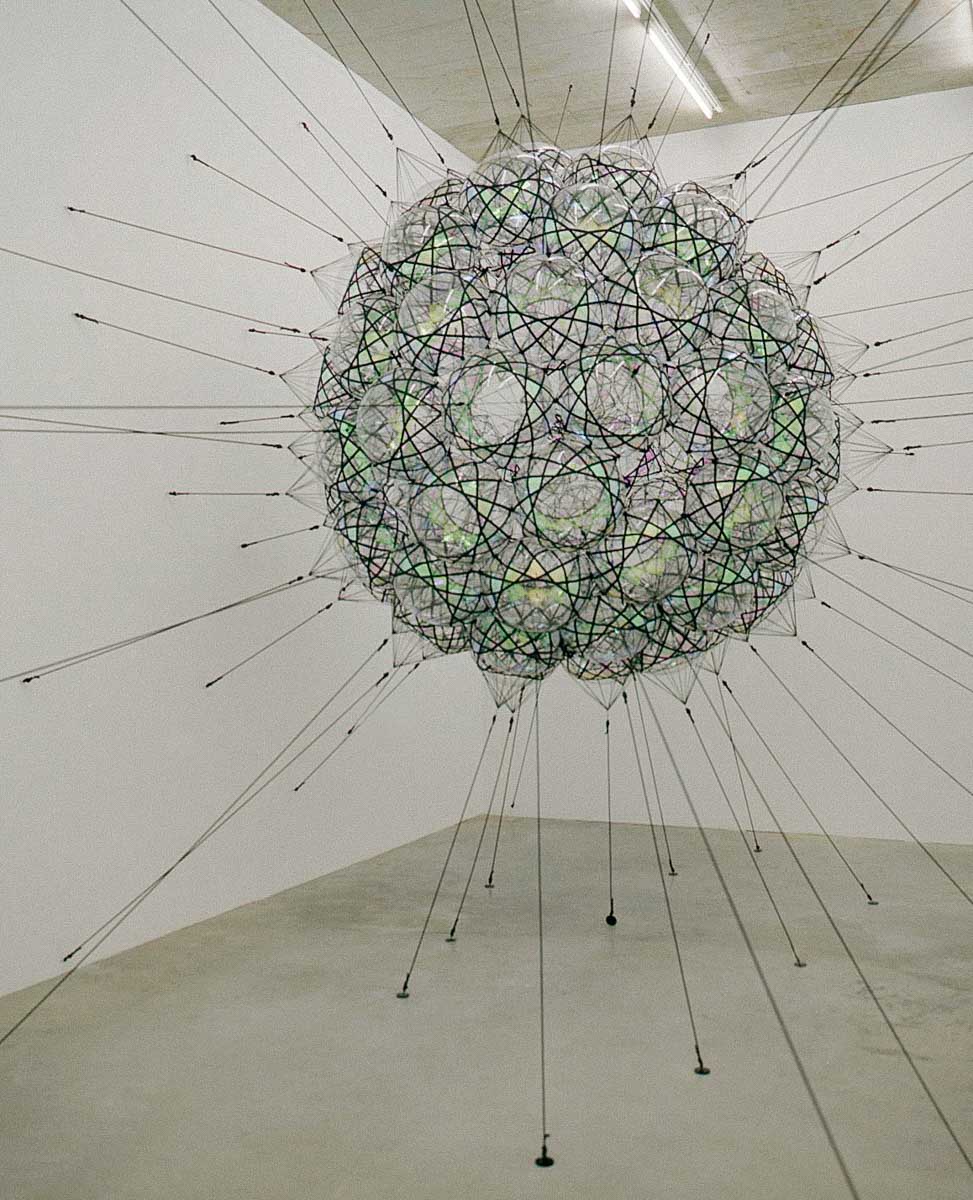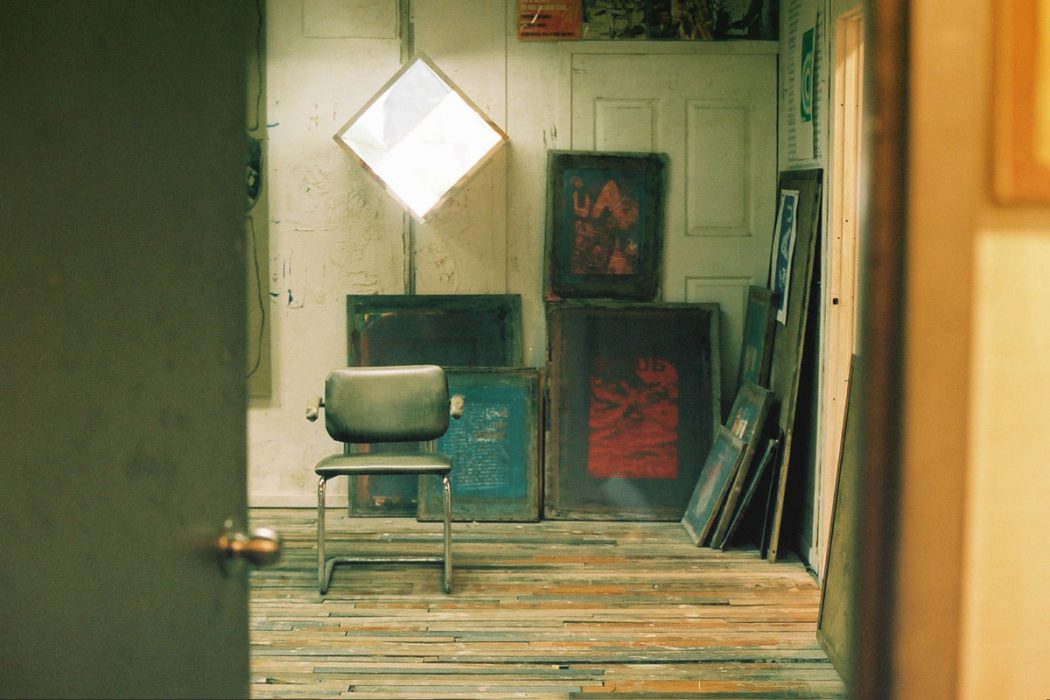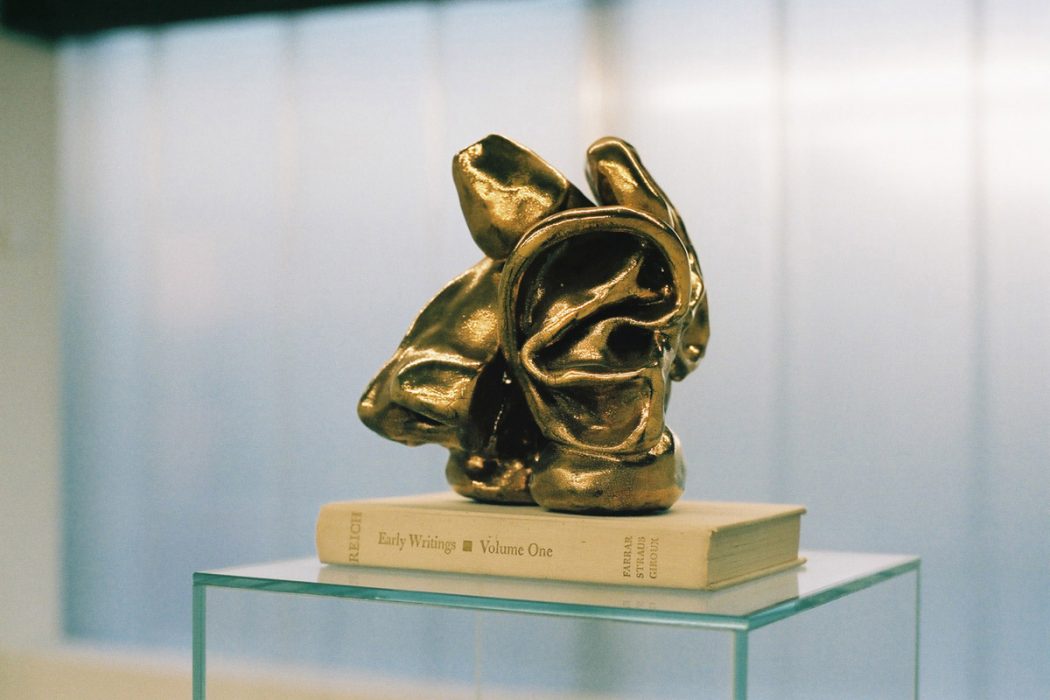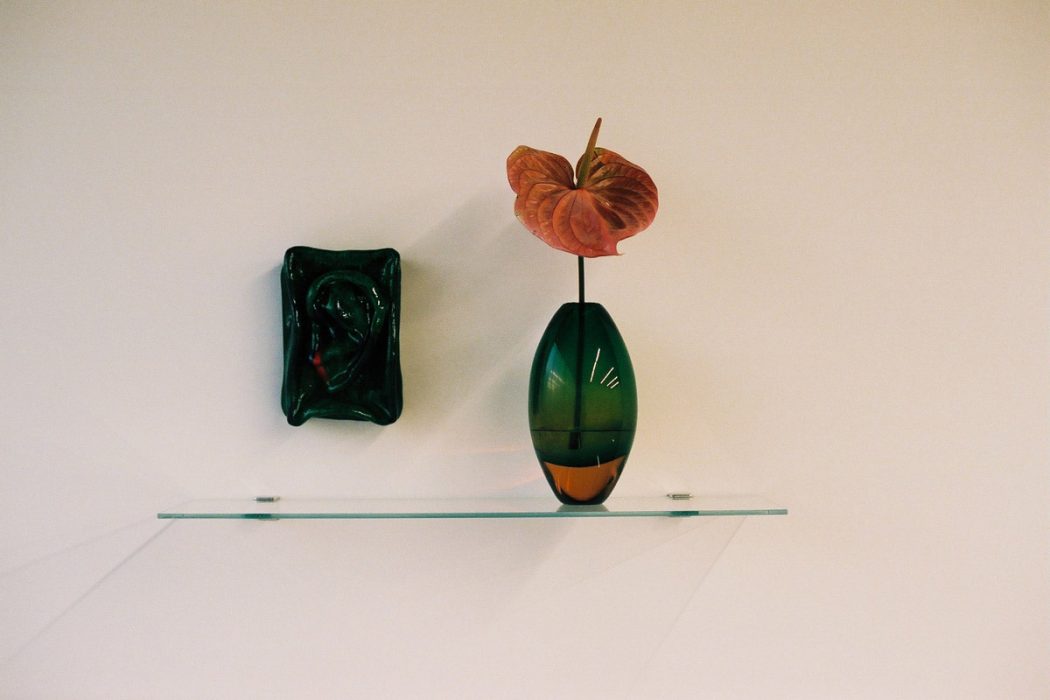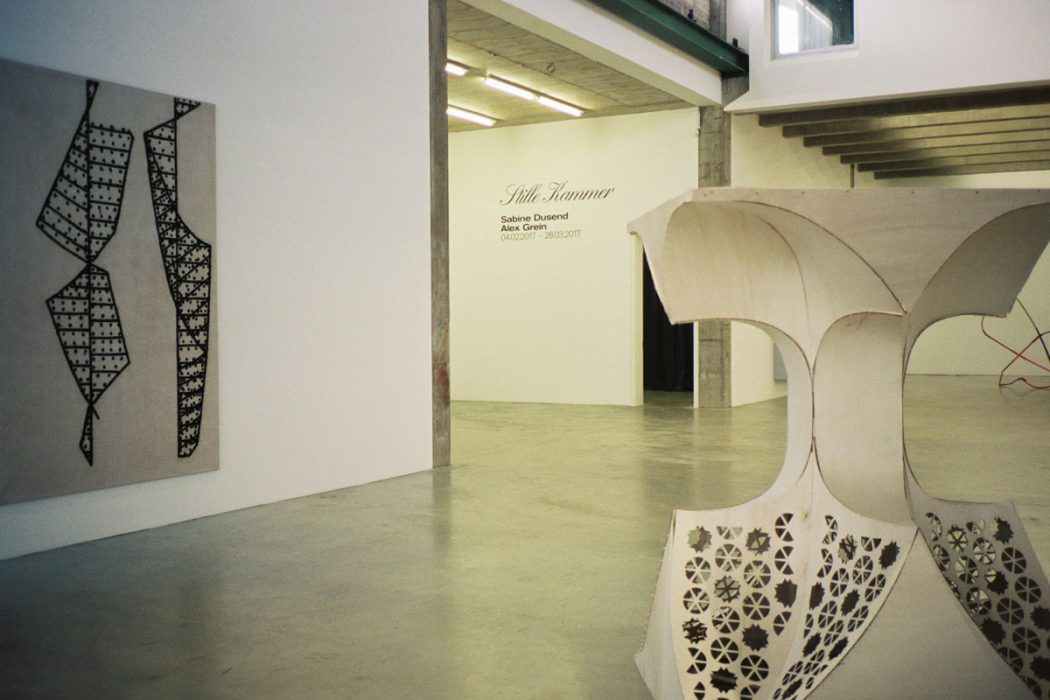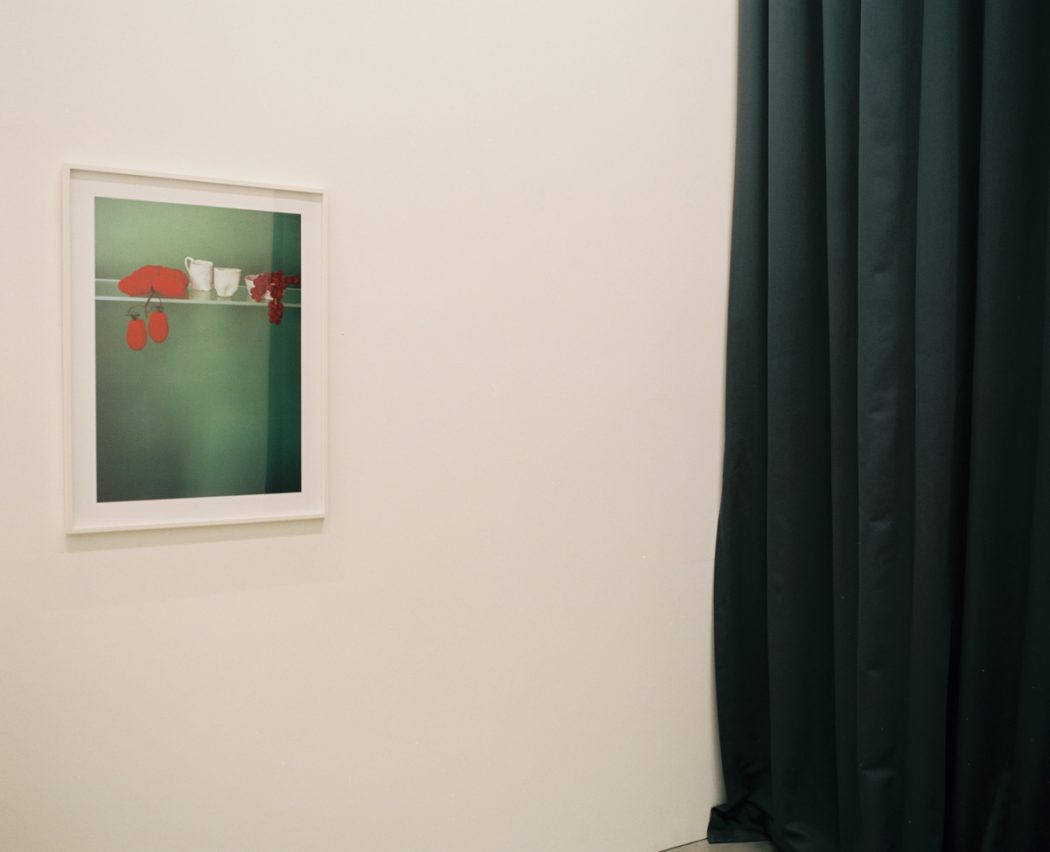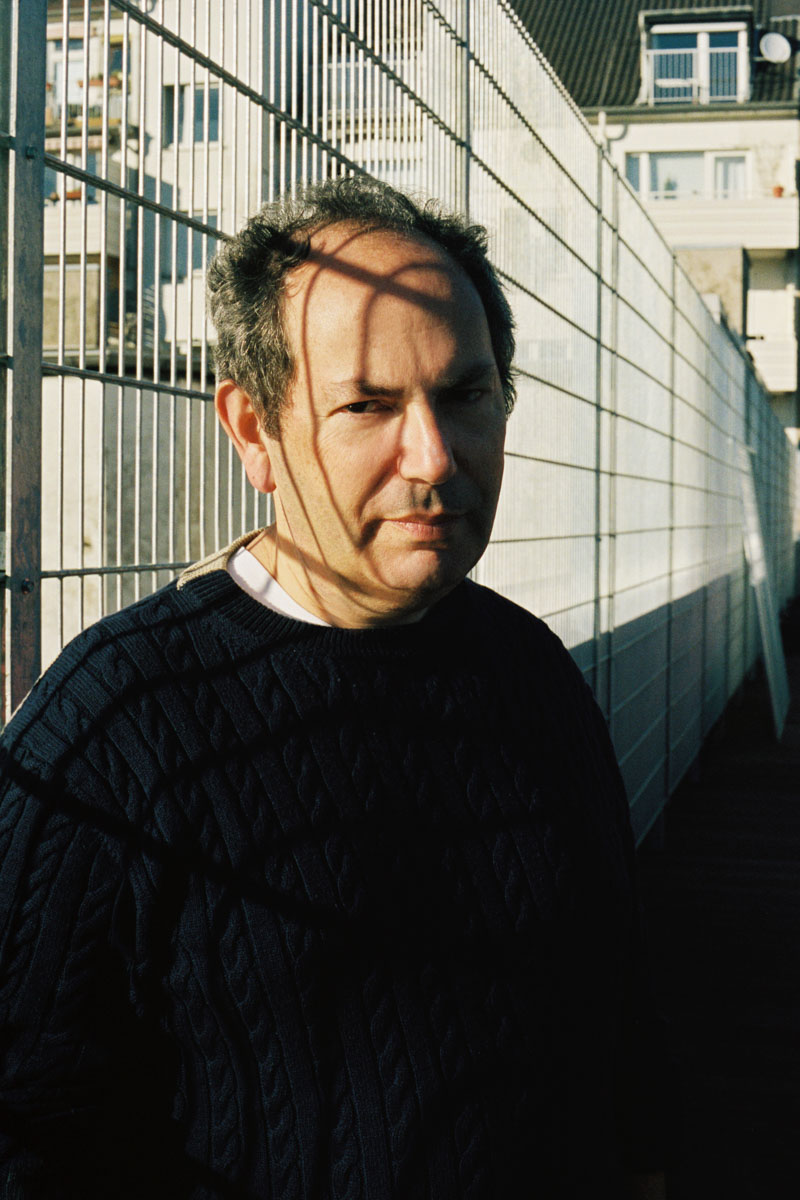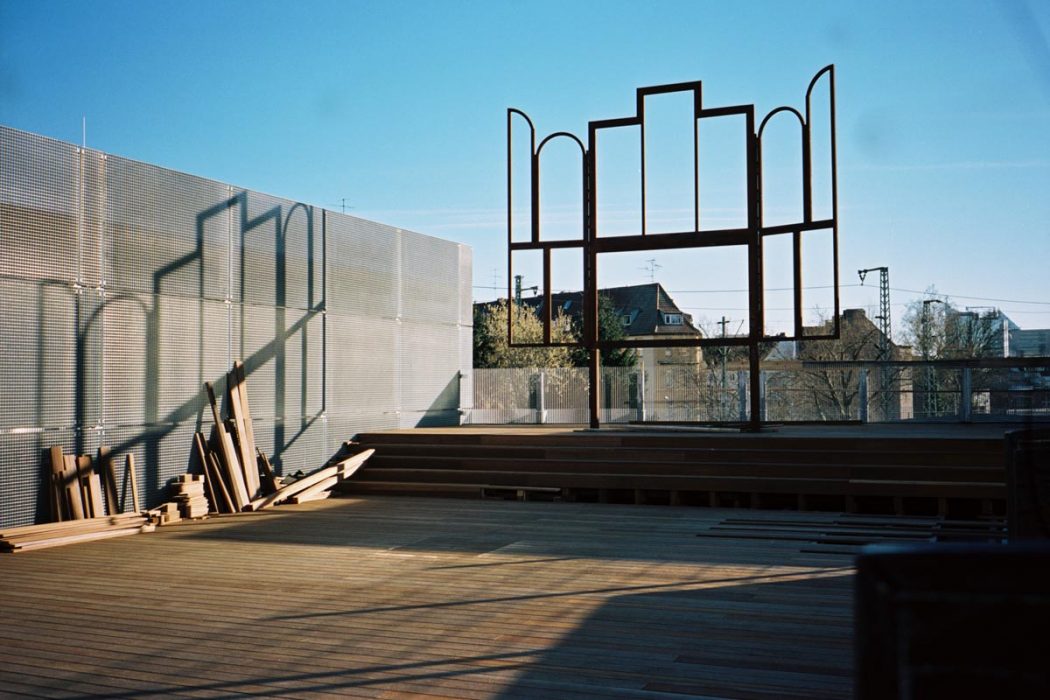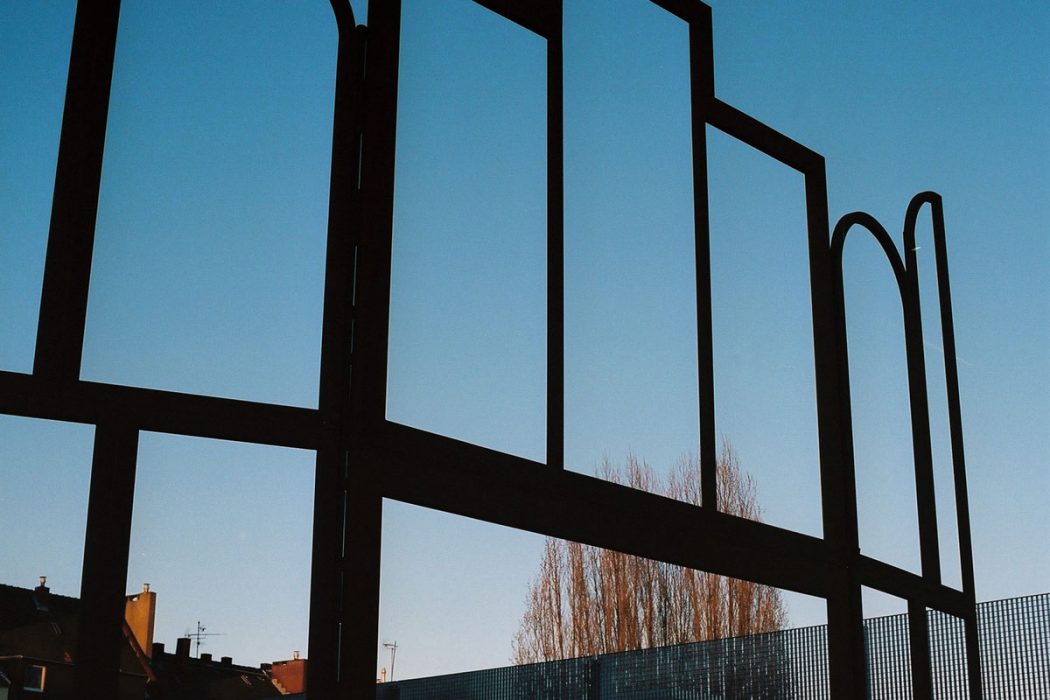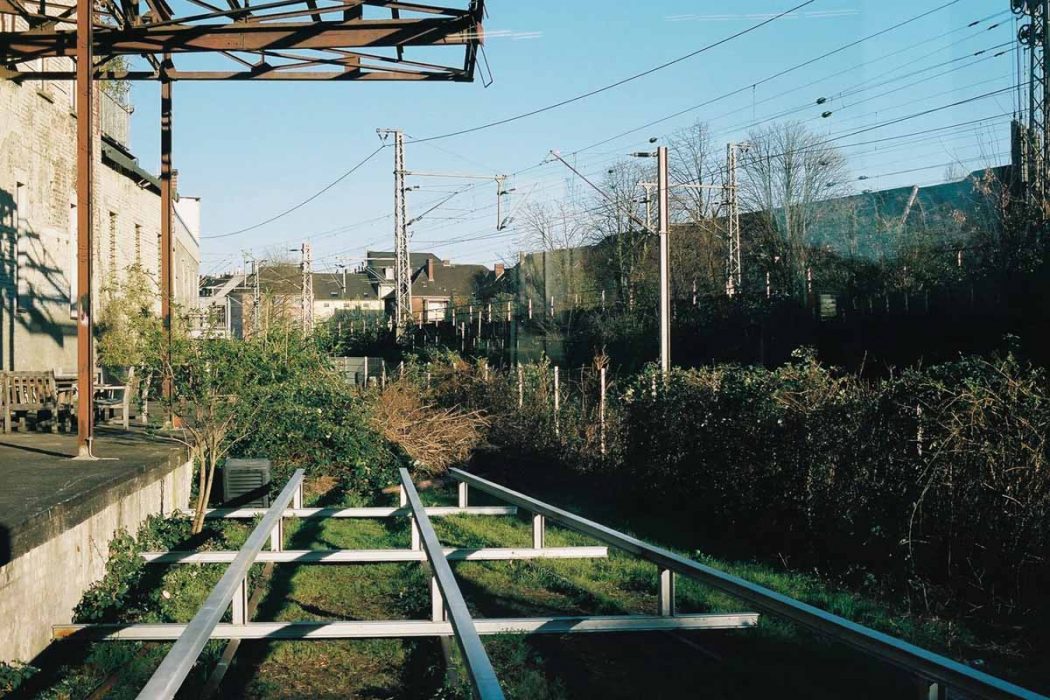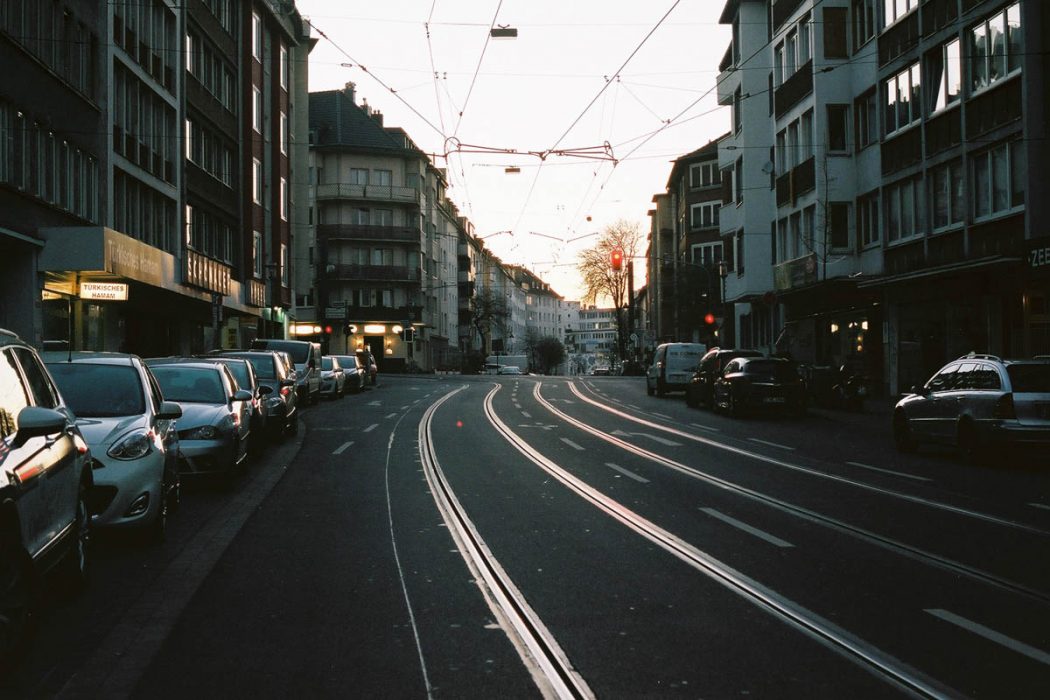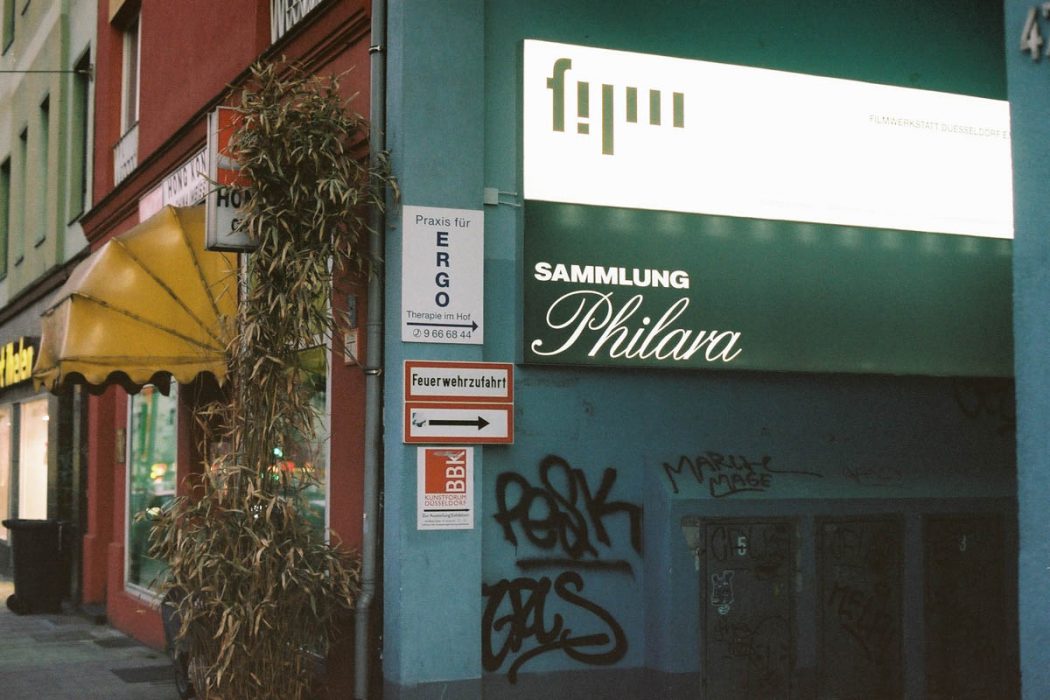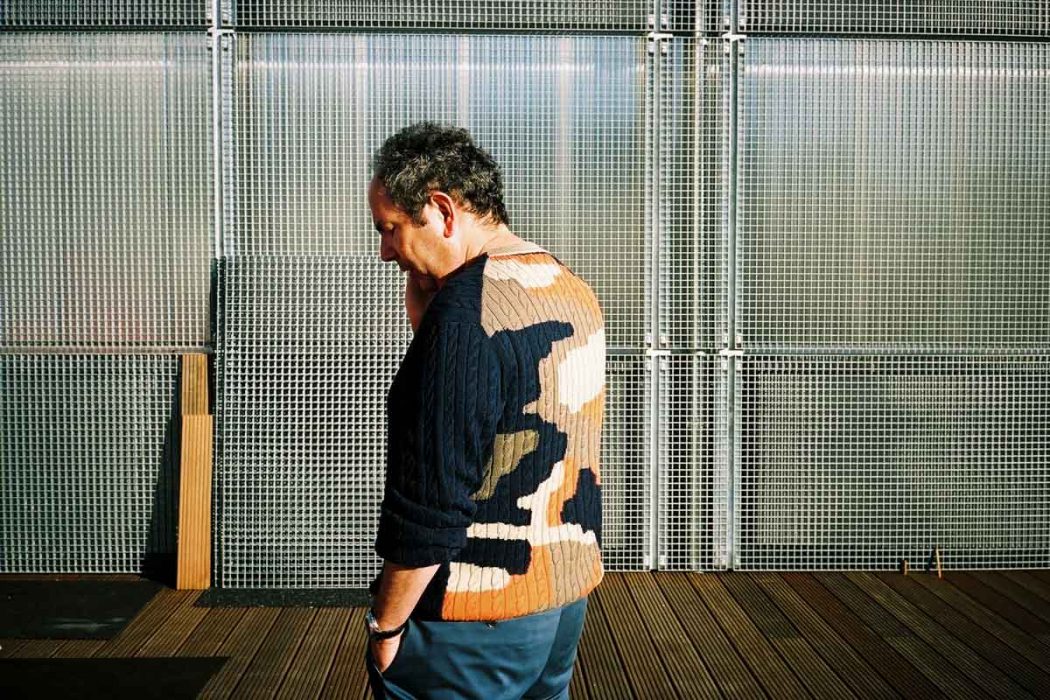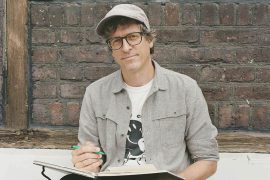Name: Gil Bronner
Age: 54
Profession: Property entrepreneur
Vocation: Art collector
Professional education: Degree in Business
Place of birth: Düsseldorf
Borough: Flingern
Website: www.philara.de
Social: Instagram
*** Hier geht es zu deutschen Version des Beitrags / Click here for the German version of the article ***
“My own unpunctuality is my rebellion against my father’s punctuality”
says Gil Bronner when he walks through the door of his Philara Collection only slightly late. The former glass factory Lennarz that the property developer bought and rebuilt extensively over the course of two years lies in a shabby backyard off Birkenstraße. A sculpture terrace of 550 square meters will be as much part of the building renovated by Sieber Architects as the restaurant Glas Lennarz where you can enjoy breakfast, lunch or simply a glass of wine. The heart of the collection are, of course, the works of art on display on 1700 square meters of exhibition space.
Mr Bronner, how did it come that you ended up with the premises of the glass factory ‘Glas Lennarz’? These premises were offered to me as part of my work as a property developer. Above all I bought it all because it was relatively far away from the Leitz factory in Reisholz (Editor’s note: where the Philara Collection had been located since 2006 until it was moved last year). I first viewed the three apartment buildings that were part of the premises and I found them in a relatively shabby condition. I thought ‘That’s not really my thing’. Then I came out onto the railway tracks at the back and the tracks were wildly overgrown with creepers. That was such beautiful sight I simply had to buy this piece of urban idyll in Düsseldorf.
What are the architectural features that you conserved? I preserved this view to the tracks and the creepers. Where you see the window today, there was a red roller grill where the trains came in. We also kept the crane, last but not least for practical reasons.
What are the renovation works that were carried out? It was a balancing act – creating a place that we can use for museum purposes while maintaining its industrial character without accentuating this aspect too much. We installed new ceilings and partitioned the two storeys. In addition to that, we fitted the usual museum media: Lighting, video surveillance and a lot of cables as well as an underfloor heating and a new floor.
Why did you decide to exhibit your collection in Düsseldorf? I am a Düsseldorfer, I was born and grew up here. I have my business here, I live here. That went without saying.
Did you ever consider leaving Düsseldorf ? Yes, this question arises time and again. The later it arises in my life, the less it is likely that I leave. If I could choose, I would probably live in New York.
Why New York? Because I can identify with the city. I like the culture there and the New Yorkers’ attitude towards life. But maybe that is only a myth as well. Anyway, I enjoy living in Düsseldorf.
You bought some 1500 works of art in the last 20 years, many of them from young artists of the art academy. How do you choose the artists that you promote? In my opinion, this question should be differentiated carefully. It maybe considered as a promotion if you buy the works of young artists, but I rather see it as a deal that is mutually beneficial. However, the exchange program that we operate together with the Kunststiftung NRW is a promotion in my view. It has a completely altruistic intend and no compensation is expected. In short: For me, purchasing the works of young art is not promotion.
Okay, let’s put it this way: How can art impress you? Is it an emotional or a rational decision? It is a combination of both. In my opinion, you cannot learn a pattern of how to appreciate art. You cannot go to a seminar and learn that a painting is good if it is painted this way or the other. You must work that out for yourself. It takes time to train your eye and recognise quality.
Where do you find new works of art or artists? We live in an unbelievably marvellous place as far as exhibitions of contemporary art are concerned. There are the KIT, Kunstverein or Kunsthalle in Düsseldorf or collections and museums in Cologne, Duisburg, Leverkusen or Krefeld that also show very good, young points of view. We have an unbelievable variety of contemporary art that we can see here. In addition to that art fairs and the annual graduate shows. There I also see new positions time and again that I find amazing and that seem to have a long lasting appeal.
Did you ever see a young artist who immediately captivated you so much that you thought: This one will become a great artist? Yes, sometimes I have had such moments. But that is an extremely daring statement, of course. The factors are very, very complex and strongly depend on luck. Andreas Schmitten could be such an example. I saw his graduate work and thought: ‘Wow, that’s really great’. Shortly thereafter, he took part in an exhibition by Tony Cragg and has had a great career ever since. But you cannot generalise that, and you certainly can’t recognise it at first glance.
What makes a great artist? Somebody who delivers a good oeuvre for at least twenty years while reinventing himself time and again without leaving his way, and while remaining somehow recognisable and keeping a constant language. Therefore I do not believe in collectors who create a hype around young artists only for the sake of financial gain. An early hype sometimes ruins careers rather than supporting them. In art, you simply need a fair degree of staying power.
Which other collectors do you appreciate? Harald Falkenberg, Christian Boros, Andreas Hölscher, Steffen Hildebrand. There are so many. Julia Stoschek does a very good job. That is not my special medium, but she is a great collector.
In which respect has the internet changed our way to deal with art? This question can be asked regarding our whole life. For me as a collector it is such that I am sometimes offered art as a PDF and I buy it without having seen it in real life. I cannot acquit myself of any of that, much as I want to. This is an effect similar to fashion that is nowadays often purchased in an online shop. The speed of information has increased in general. You get more invitations than ever before. Everybody is available at all times and you are constantly bombarded with new impressions. As far as art is concerned: Ideas are no longer thought through properly. That is why I have often problems with post-digital art.
Why exactly? I think these are very often half-baked ideas. There are few artists who address politics profoundly.
Should art be political? I miss real engagement with politics in art. I am astonished that young artists are so unpolitical. In my view, the current geopolitical situation cries out for artistic confrontation. Maybe that has also something to do with the internet. Everything is so fast and there is so much information that you cannot digest the events quickly enough.
But that has changed since Donald Trump, hasn’t it? In other countries – yes. In Germany art is shockingly free of politics. I think that is due to a certain bohemian laziness. I don’t claim that all artists are doing well materially, but they are not so poor that the level of dissatisfaction would lead to genuine social criticism.
Are there no exceptions? Yes, of course there are. Marcel Odenbach is one of the encouraging exceptions. I like intelligent art. I like it if a work of art has a history.
When will the café ‘Glas Lennarz’ in the Philara Collection open? We will open at Easter 2017. In addition, we are redesigning the terrace so that you can also eat outdoors.
And which events do you plan at the Philara Collection in the near future? The next exhibition will be Erika Hock, Thomas Grünfeld will follow in September. We also have some ideas for events: Concerts, co-operations with Schauspielhaus and Tanzhaus NRW. Art films shall be shown here as well — we have a lot of plans.
Last words? I have some, indeed. I am a very unpunctual person. Therefore I will invite to my funeral at 3 p.m. and have the coffin carried in at 3.20 p.m. For all those who always said: “He will be late even at his own funeral”, my last words will be: “Kind regards from Gil, he didn’t want to disappoint you”.
Where do you like to spend a cosy evening with friends or family? I like to go to Olio. That is very convenient because it is so close by. I like to eat Japanese dishes at Yabase. And my favourite Greek restaurant is Toxotis.
Which book is now lying on your bedside table? ‚The Ugly Duchess’ by Lion Feuchtwanger.
Which movie have you seen last? I don’t remember at the moment, but I know which one I want to see next: Moonlight.
What is now on your playlist/your record player? I often dig up old things. This morning it was Slade.
Thank you!
Text & Interview: Barbara Russ
Photography: Sabrina Weniger
© THE DORF 2017




